Jesus, recognizing the power of a good story to alter men’s lives, to change the course of nations and restructure societies, used them liberally to help His hearers better understand who He was and what His mission entailed.
The Christmas season provides a great opportunity to tell His story. At this time of the year, people tend to be more receptive to spiritual things. Not that they are particularly more spiritual; but rather, simply because of the name of Jesus is mentioned and the world-wide celebration of His birth, hearts are open to spiritual things. People are so much nicer and kinder. They are in the spirit of gift-giving and receiving. If you offer them the gift of a Truth filled book, they will happily accept it.
This is not a time to debate the merits of whether He was born on December 25th, or to confront others on the pagan origins of the day; but rather to take full advantage of the opportunity to let men and women know of His love for them, for their need to give their lives to Him, and to accept Him as their Lord and Savior from sin. The devil may have intended this season for evil and to serve him; but I thank God that He has made it for good in that it provides so much opportunity for men and women to come to know Him. Whatever each of us may do is a matter of conscience between us and our God. I simply would like to share the rest of the story with you.
The apostle Paul teaches that whosoever preaches the Gospel, in whatever manner, and for whatever reason it is preached, it is profitable and effective. He declares, “Some indeed preach Christ even of envy and strife; and some also of good will: The one preach Christ of contention, not sincerely, supposing to add affliction to my bonds: But the other of love, knowing that I am set for the defence of the gospel. What then? notwithstanding, every way, whether in pretence, or in truth, Christ is preached; and I therein do rejoice, yea, and will rejoice” (Philippians 1:15-18). I rejoice with the Apostle Paul and with the whole world that the Savior was born, who is Christ the Lord. Even those who do not call themselves Christians are rejoicing and celebrating His birth. No one can escape the sentiment of the season as the name of Jesus is lifted up at this time of the year.
I thank God for His birth. I thank God that he is no longer a babe in His mother’s arms. I rejoice in the fact that the Babe of Bethlehem is God’s supreme gift to the human family. I rejoice that He grew up to live a sinless life and left it as an example for us to follow His steps. I praise God that He paid the ultimate price, His life as a ransom, for my sins and yours that we may have a right back to the tree of life. I am excited that He has given me the blessed hope of eternal life in His resurrection from the tomb on the third day. I praise God for Him being my heavenly High Priest that I can come to Him with my joys, sorrows, and petitions. I look forward with joyous anticipation to His soon return as Lord of Lords and King of kings.
The Bible gives us the only accurate account of the origins and history of humanity. It teaches us that our Creator gave us our perfect, wonderful world with all its unspeakable beauty which He created by His word out of nothingness. He created our first parents in His own image. He then gave them His Sabbath rest as a reminder of who He is…theirs and our Creator. Then something most tragic happened. The Bible says that our first parents disobeyed God’s command. This is called sin and it separates us from our Creator. The apostle John writes: “Whosoever committeth sin transgresseth also the law: for sin is the transgression of the law” (1 John 3:4). The apostle Paul gives us the remedy: “For the wages of sin is death; but the gift of God is eternal life through Jesus Christ our Lord (Romans 6:23).
So, four thousand years after sin entered the picture, the gift was presented. The apostle Matthew records: “Now when Jesus was born in Bethlehem of Judaea in the days of Herod the king, behold, there came wise men from the east to Jerusalem, Saying, Where is he that is born King of the Jews? for we have seen his star in the east, and are come to worship him” (Matthew 2:1-2).
Who were these wise men of the east? Most scholars agree that they had come from Babylon. Babylon was perhaps the greatest empire of the ancient world. It was a place of wealth, knowledge, and magnificence. It had a highly developed culture. They were well versed in Science, Mathematics, Philosophy, Astronomy, Art, Architecture, and all the other known disciplines of the human experience. The wise men were also learned in the Hebrew Scriptures, having studied them from God’s people who were captives in their land for more than seventy years. They discovered from those Scriptures that: “ There shall come a Star out of Jacob, and a Scepter shall rise out of Israel”(Numbers 24:17).
On that memorable night some two thousand years ago, having studied both the Hebrew Scriptures and the movements of the heavenly bodies, the wise men followed what they believed to be that star that would lead to the promised Messiah. The star led them to the Babe in Bethlehem. Not only did they find Him; but Matthew records that they brought precious gifts to honor Him. Says he: “And when they were come into the house, they saw the young child with Mary his mother, and fell down, and worshipped him: and when they had opened their treasures, they presented unto him gifts; gold, and frankincense and myrrh” (Matthew 2:11).
Those were no arbitrary gifts. They were prophesies of who the receiver was and what He would do on our behalf to ransom and reunite us back to God. In them we find the rest of the story. They gifts were figures of God’s plan of Redemption for our wretched souls. The entire Plan of Salvation was wrapped in those precious gifts.
Let us, first of all, take a look at the myrrh. In the book of John, chapter 3, the Bible tells us that a very respectable, important, and highly revered Jewish leader came to Jesus, in secrecy, in the darkness of the night, and engaged Jesus in a conversation about salvation. That man, Nicodemus, was stunned and astonished at Jesus’ simple presentation of the doctrine of salvation. It defied his scholarly learning and belittled his philosophical presuppositions. Jesus’ simple answer must have bewildered Nicodemus for not only its simplicity; but also for its profound impact upon his mind. Jesus told Nicodemus, and is telling us today that in order to enter God’s kingdom, we must be born again.
At first, Nicodemus did not understand what Jesus meant. But now, 3 ½ years later, Nicodemus fully understands the plan of Salvation and embraces the Lamb that John talked about (John 1:29). He now comes openly, revealing to us the meaning of the myrrh that the wise men brought from the East. John records: “And there came also Nicodemus, which at the first came to Jesus by night, and brought a mixture of MYRRH and aloes, about an hundred pound weight. Then took they the body of Jesus, and wound it in linen clothes with the spices, as the manner of the Jews is to bury” (John 19:39-40). Paul tells us: “But God commendeth his love toward us, in that, while we were yet sinners, Christ died for us (Romans 5:8). The myrrh represented His sacrifice, the price that He would pay for our sins so that we can be reunited with Him. The wise men of the East were prophesying of this glorious event in the gift of myrrh to the Babe of Bethlehem.
Now let’s take a look at the frankincense. The apostle Paul, in trying to help his Hebrew brethren truly understand the meaning of the ancient Jewish sanctuary and sacrificial system, writes to them in the book of Hebrews. Having given them a thorough explanation of the symbols and types of the earthly sanctuary, the center piece of their economy, he then concludes: “Now of the things which we have spoken this is the sum: We have such an high priest, who is set on the right hand of the throne of the Majesty in the heavens; A minister of the sanctuary, and of the true tabernacle, which the Lord pitched, and not man” (Hebrews 8:1-2).
In that ancient system of rites and rituals, frankincense was the main ingredient with which other spices were mixed to form the incense that the high priest used in the services. And what did he use it for? Moses tells us in the book of Exodus, the 30th chapter, beginning at verse 7. He writes: “And Aaron shall burn thereon sweet incense every morning” And what was that incense made of? Moses continues: “And the Lord said unto Moses, Take unto thee sweet spices, stacte, and onycha, and galbanum; these sweet spices with pure FRANKINCENSE: of each shall there be a like weight” (Exodus 30:34). John the Revelator, in prophetic vision, tells us what he saw in the heavenly sanctuary which is the reality represented by the earthly tabernacle in ancient Israel: “And another angel came and stood at the altar, having a golden censer; and there was given unto him much incense, that he should offer it with the prayers of all saints upon the golden altar which was before the throne” (Revelation 8:3).
So, what does the frankincense represent? It represents the merits and righteousness of Jesus Christ as our heavenly High Priest, not only to hear, but to answer our prayers. It represents the work of Jesus Christ, as He intercedes on our behalf in the work of sanctification that we may be ready to go home with Him when He comes. The apostle Paul encourages and consoles us: “Seeing then that we have a great high priest, that is passed into the heavens, Jesus the Son of God, let us hold fast our profession. For we have not an high priest which cannot be touched with the feeling of our infirmities; but was in all points tempted like as we are, yet without sin. Let us therefore come boldly unto the throne of grace, that we may obtain mercy, and find grace to help in time of need” (Hebrews 4:14-16).
What about the gold? What was it prophesying about? Gold is the most precious and costly of metals. It over layered everything that was used in the ancient Jewish sanctuary. It covered the altars, the posts, the seven branch candlestick, and the mercy seat. The utensils were all gold. Everything in and about the ancient sanctuary was pointing to Jesus and His ministry for salvation for the human race. The gold represented His sovereignty over all creation.
As you go through the unavoidable Christmas season, I say to you rejoice. Rejoice as you let somebody know that the Babe of Bethlehem has grown up, lived a sinless life as an example for us to follow. Let them know that as the wise men from the East had prophesied with the myrrh, that He gave His life as a ransom for you and for them. Let them know, that as the wise men from the East had foretold of His High Priestly ministry with the gift of the frankincense, they can come to Him and talk with Him about all their burdens and cares. Let somebody know that He is coming soon, as the wise men prophesied with their gift of gold, as King of kings and Lord of lords to take us home to spend eternity with Him in a place where there will be no more death, no more crying, nor sorrow, nor pain, for the former things would have passed away. I plan on being there, what about you?
More importantly, let them know by your life that the story is real. May those with whom you come into contact with be able to say of you as the church leaders said of Peter: “Now when they saw the boldness of Peter and John, and perceived that they were unlearned and ignorant men, they marvelled; and they took knowledge of them, that they had been with Jesus” (Acts 4:13).

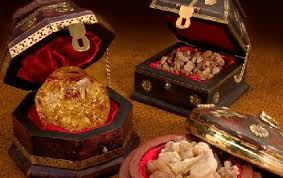
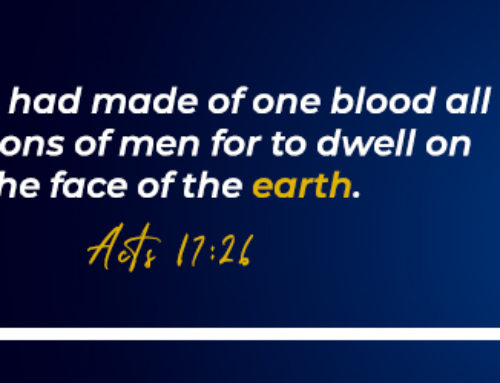


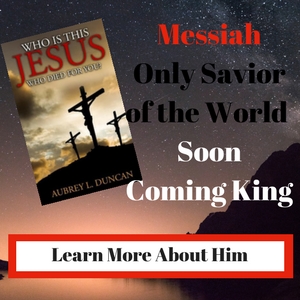
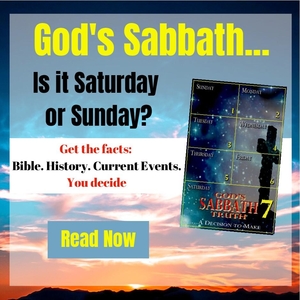
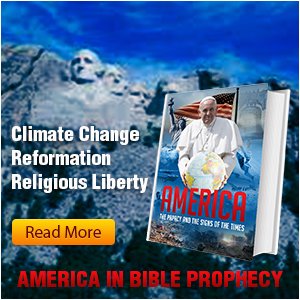
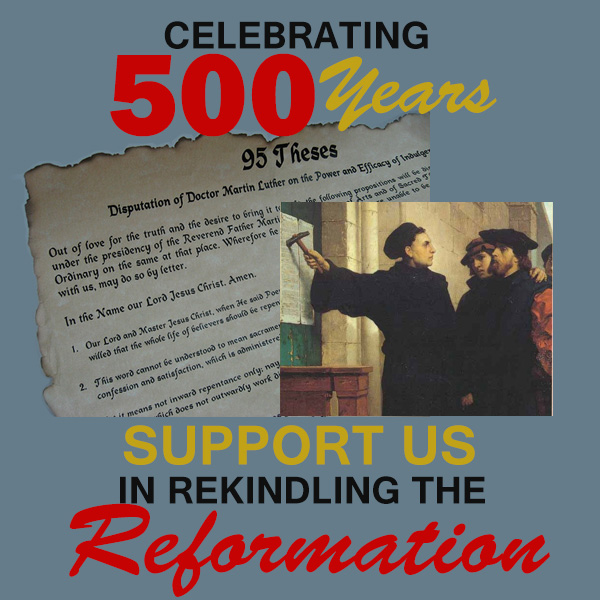
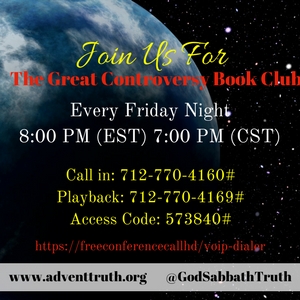
Leave A Comment